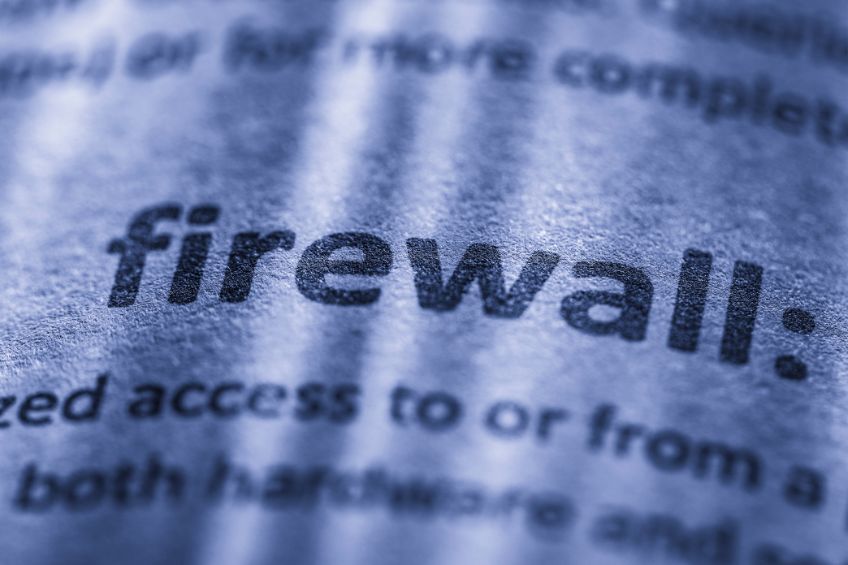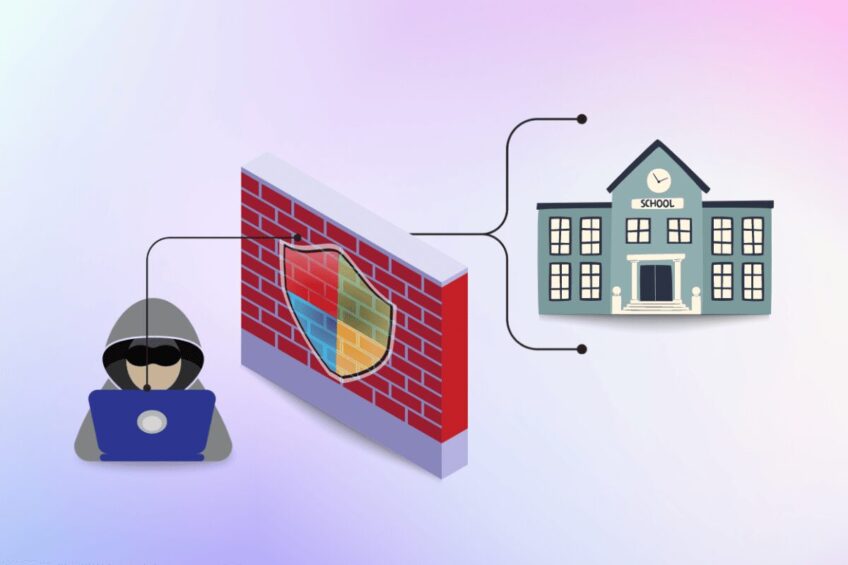In the age of information, access to the internet is vital. Schools and workplaces often implement firewalls to maintain a focus on education and productivity, filtering out harmful or distracting content.
However, sometimes, these restrictions can block access to legitimate educational resources or important websites.
Today, I will walk you through nine effective methods to bypass a school firewall.
Here’s what you will learn:
- Firewall Functions: Readers will learn about the purpose and mechanisms of school firewalls, including how they filter internet content.
- Legal and Ethical Implications: The article highlights the importance of considering legal and ethical aspects when attempting to bypass a school firewall.
- Various Bypassing Techniques: It provides an overview of different methods to bypass a firewall, including VPNs, proxy servers, and changing DNS settings.
- Collaboration and Communication: Emphasis on engaging with school administrators to potentially review and adjust firewall settings.
- Digital Responsibility: The article underscores the importance of responsible internet use and digital citizenship in the context of accessing restricted online content.
1. Requesting Permission
Before attempting to bypass a firewall, consider the simplest approach: asking for permission.
Schools often have a process for unblocking websites if they serve an educational purpose.
This method is the most straightforward and avoids any potential legal or ethical issues.
2. Disabling the Firewall
Disabling the firewall on your device might seem like a direct method, but it’s risky. This action can expose your device to security threats and might violate school policies.
It’s crucial to understand the risks and consequences before attempting this.
3. Using VPNs
VPNs (Virtual Private Networks) are popular tools for bypassing firewalls.
They encrypt your internet traffic and route it through a server in a different location, masking your online activity.
This method can be effective, but check your school’s policy on VPN usage.
4. Proxy Servers
Proxy servers act as a bridge between your device and the internet. By routing your requests through a proxy server, you can access blocked websites.
However, proxies may not encrypt your traffic as VPNs do, so be cautious about the information you access.
5. Direct IP Access
Sometimes, accessing a website directly via its IP address can circumvent domain-based blocks.
This method can be hit or miss, as some firewalls block IP addresses as well.
6. URL Shorteners
URL shorteners can sometimes provide a way around firewalls.
By shortening the URL of a blocked site, you create a different address that may not be recognized by the firewall.
7. Google Translate as a Proxy
Using Google Translate as a proxy server is a clever trick. Translating a webpage from one language to another will allow you to access the content of blocked sites.
This method isn’t foolproof, but it’s worth a try.
8. Privacy-Focused Browsers
Browsers like Brave and Tor prioritize privacy and can sometimes bypass firewalls.
They offer various features like private browsing modes and network relays to obscure your internet activity.
9. Changing DNS Settings
Altering your DNS settings can help you bypass certain types of internet filters.
By using different DNS servers, like Google DNS or OpenDNS, you might access blocked sites. This method is more technical and requires careful execution.
Additional Considerations

1. Remote Desktop Connection
Remote Desktop Connection is a method where you can access another computer over the internet.
Connecting to a remote PC that is not under the same restrictions allows you to browse the internet freely.
This requires having access to a remote computer that is not subject to the same firewall rules.
2. Switching Networks
Sometimes, the simplest solution is to switch to a different network.
Using mobile data or connecting to a different Wi-Fi network can provide immediate access to blocked sites.
Be aware of data usage and security when using public networks.
3. Educational Exemptions
Some firewalls are configured to allow access to educational resources.
Identifying and using websites labeled as educational can provide a wealth of information without needing to bypass the firewall.
4. Browser Extensions
Certain browser extensions can help bypass firewalls. These extensions can route your internet traffic through other servers, similar to VPNs, or help disguise your browsing activity.
Always use trusted and secure extensions to avoid compromising your data.
5. Mobile Applications
There are apps designed to bypass internet restrictions. These apps can be particularly useful on mobile devices, offering alternative methods to access blocked content.
Ensure that you use secure and reliable apps to maintain your data privacy.
6. Legal and Ethical Implications
It’s crucial to consider the legal and ethical implications of bypassing a firewall. In some cases, it can lead to severe consequences, including legal action.
Always ensure that your actions align with the laws and ethical standards of your region.
Know the Digital Landscape
Informing and Educating
One often overlooked aspect is the importance of educating oneself about the digital landscape.
Knowing how firewalls work, the rationale behind them, and the potential risks associated with bypassing them is crucial.
This knowledge empowers you to make informed decisions and use the internet responsibly.
Collaborative Solutions
Instead of bypassing the firewall, consider collaborating with school administrators to address overly restrictive filters.
Proposing a review of blocked sites, especially those that are educational, can lead to a more open yet secure online environment.
This approach fosters a culture of trust and understanding.
Know About Firewall Policies
Gaining insight into why certain websites are blocked can provide a perspective on your school’s policies.
This knowledge can guide you in choosing the most appropriate method to access the content you need while respecting the school’s guidelines.
Emphasizing Digital Citizenship
Digital citizenship is about using the internet and technology responsibly.
Part of this responsibility includes respecting the boundaries set by institutions like schools.
It’s important to balance the desire for unrestricted access with the principles of good digital citizenship.
The Role of Technology in Education
Technology plays a significant role in education. Knowing how to harness these resources wisely can enhance your learning experience.
Instead of viewing firewalls solely as barriers, consider them as part of a broader educational ecosystem that includes both restrictions and opportunities.
FAQs

Can firewall bypassing lead to a permanent ban from school networks?
Yes, bypassing a firewall can result in severe penalties, including permanent bans from school networks, depending on the school’s policy.
Are there any risks to the school’s network if I bypass the firewall?
Bypassing the firewall can expose the school’s network to security risks, including malware and unauthorized access.
Will using a VPN slow down my internet connection?
Yes, using a VPN can potentially slow down your internet connection due to the encryption process and the rerouting of your traffic through a different server.
Is it possible for a school to detect if I am using a VPN or proxy?
Schools can sometimes detect VPN or proxy use through advanced network monitoring tools, especially if the network is configured to identify such traffic.
Can changing DNS settings affect other applications on my device?
Changing DNS settings might affect how other applications on your device access the internet, potentially leading to connectivity issues.
Are there legal consequences for bypassing a school firewall?
The legal consequences depend on local laws and the school’s policies. In some cases, bypassing a school firewall may lead to legal action.
Final Words
Bypassing a school firewall is possible, but it comes with responsibilities. Always prioritize ethical considerations and understand the potential consequences of your actions.
If in doubt, seek permission from your school’s administration.
The internet is a powerful resource, and navigating its restrictions requires a balance of ingenuity, respect for rules, and an understanding of digital security.
Disclaimer: This article is for informational purposes only. Bypassing firewalls may violate your school’s policies and local laws.
Always proceed with caution and consider the ethical and legal implications of your actions.

